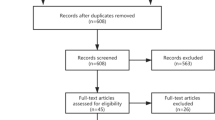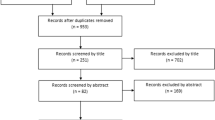Abstract
Introduction
Given the increase in life expectancy in the general population of our country, there is an exponential increase since the last decades of functional older adults who undergo total knee replacement (TKR). There is a direct relationship between the increase in age and the prevalence of both functional and cognitive disabling chronic diseases, however, little we know about whether age is an independent factor in predicting worse functional outcomes and readmissions after TKR. The objective of this study was to evaluate the clinical-functional results and unplanned readmissions within the first 90 postoperative days in patients older than 80 years compared with a control group of patients younger than 80 years.
Methods
From our institutional patient database, 450 patients who underwent TKR between 2016 and 2019 were retrospectively analyzed. All patients had the medical assurance of Hospital Italiano (Plan de Salud), for which none of these was lost on the follow-up nor were treated in another hospital. Patients were divided in two groups: Group A with 186 patients over 80 years and a control group B with 264 patients between 70 and 80 years. The fragility of these was defined according to the Charlson Comorbidity Index and the Simple Frail Score. Comorbidities were divided in eight groups to define which were the most influential in the final results.
Results
No significant differences were observed in terms of unplanned readmissions, pain or in functional scores within 90 days between both groups. There was a significant difference in the length of postoperative hospital stay in favor of group A (A: 2.56 SD + − 0.76, B: 4.08 SD = − 2.23; p = 0.00001). The Charlson score was higher in the group of patients older than 80 years (p = 0.02) as well as the Simple Frail Score (p = 0.004). The ASA score did not show significant differences between both groups.
Conclusion
Age as an independent factor proved not to be a predictor by itself of unplanned readmissions or worse clinical-functional results in a period of 90 postoperative days between both groups. We believe that the preoperative evaluation of octogenarian patients should be multidisciplinary, with special attention to the identification of comorbidities that can influence the fragility of a patient and the optimization of the pathology.
Similar content being viewed by others
References
Kurtz S, Ong K, Lau E, Mowat F, Halpern M (2007) Projections of primary and revision hip and knee arthroplasty in the United States from 2005 to 2030. J Bone Joint Surg Am 89(4):780–785
Rupp M, Lau E, Kurtz SM, Alt V (2020) Projections of primary TKA and THA in Germany from 2016 through 2040. Clin Orthop Relat Res 478(7):1622–1633
Austin DC, Torchia MT, Moschetti WE, Jevsevar DS, Keeney BJ (2018) Patient outcomes after total knee arthroplasty in patients older than 80 years. J Arthroplasty 33(11):3465–3473
Watt JA, Goodarzi Z, Veroniki AA, Nincic V, Khan PA, Ghassemi M et al (2020) Safety of pharmacologic interventions for neuropsychiatric symptoms in dementia: a systematic review and network meta-analysis. BMC Geriatr 20(1):212
Idárraga-Cabrera C, Dueñas J-M, Martínez-González M-B, Navarro-Blanco R, Denegri-Coria M, Pino M (2020) Cognitive functioning, life satisfaction, and their relationship with the financial attitudes of older individuals who participate in an active aging program. Behav Sci (Basel) 10(12):189
Kennedy JW, Johnston L, Cochrane L, Boscainos PJ (2013) Total knee arthroplasty in the elderly: does age affect pain, function or complications? Clin Orthop Relat Res 471(6):1964–1969
Pagnano MW, McLamb LA, Trousdale RT (2004) Total knee arthroplasty for patients 90 years of age and older. Clin Orthop Relat Res 418:179–183
Joshi AB, Gill G (2002) Total knee arthroplasty in nonagenarians. J Arthroplast 17(6):681–684
Belmar CJ, Barth P, Lonner JH, Lotke PA (1999) Total knee arthroplasty in patients 90 years of age and older. J Arthroplast 14(8):911–914
Tay KS, Cher EWL, Zhang K, Tan SB, Howe TS, Koh JSB (2017) Comorbidities have a greater impact than age alone in the outcomes of octogenarian total knee arthroplasty. J Arthroplast 32(11):3373–3378
Murphy BP, Dowsey MM, Choong PFM (2018) The impact of advanced age on the outcomes of primary total hip and knee arthroplasty for osteoarthritis: a systematic review. JBJS Rev 6(2):e6
Robinson TN, Wu DS, Pointer L, Dunn CL, Cleveland JC, Moss M (2013) Simple frailty score predicts postoperative complications across surgical specialties. Am J Surg 206(4):544–550
Charlson ME, Pompei P, Ales KL, MacKenzie CR (1987) A new method of classifying prognostic comorbidity in longitudinal studies: development and validation. J Chronic Dis 40(5):373–383
Irlbeck T, Zwißler B, Bauer A (2017) ASA classification : transition in the course of time and depiction in the literature. Anaesthetist 66(1):5–10
Ares O, Castellet E, Maculé F, León V, Montañez E, Freire A et al (2013) Translation and validation of “The Knee Society Clinical Rating System” into Spanish. Knee Surg Sports Traumatol Arthrosc 21(11):2618–2624
Corrada MM, Brookmeyer R, Paganini-Hill A, Berlau D, Kawas CH (2010) Dementia incidence continues to increase with age in the oldest old: the 90+ study. Ann Neurol 67(1):114–121
Pavone V, Boettner F, Fickert S, Sculco TP (2001) Total condylar knee arthroplasty: a long-term followup. Clin Orthop Relat Res 388:18–25
Alfonso DT, Howell RD, Strauss EJ, Di Cesare PE (2007) Total hip and knee arthroplasty in nonagenarians. J Arthroplast 22(6):807–811
Edwards PK, Kee JR, Mears SC, Barnes CL (2018) Is rapid recovery hip and knee replacement possible and safe in the octogenarian patient? J Arthroplast 33(2):316–319
Berend ME, Thong AE, Faris GW, Newbern G, Pierson JL, Ritter MA (2003) Total joint arthroplasty in the extremely elderly: hip and knee arthroplasty after entering the 89th year of life. J Arthroplast 18(7):817–821
Dindo D, Demartines N, Clavien P-A (2004) Classification of surgical complications: a new proposal with evaluation in a cohort of 6336 patients and results of a survey. Ann Surg 240(2):205–213
Funding
No funds of any kind were received to carry out this study.
Author information
Authors and Affiliations
Corresponding author
Ethics declarations
Conflict of interest
The authors that they have no conflict of interest.
Ethical approval
All procedures performed in studies involving human participants were in accordance with the ethical standards of the institutional and/or national research committee and with the 1964 Helsinki declaration and its later amendments or comparable ethical standards.
Informed consent
Informed consent was obtained from the patient included in the study.
Additional information
Publisher's Note
Springer Nature remains neutral with regard to jurisdictional claims in published maps and institutional affiliations.
Rights and permissions
About this article
Cite this article
Vildoza, S., García-Mansilla, A., Brandariz, R. et al. Total knee replacement in octogenarians, Is age a determining factor in predicting complications? a retrospective cohort study. Eur J Orthop Surg Traumatol 33, 367–371 (2023). https://doi.org/10.1007/s00590-021-03196-6
Received:
Accepted:
Published:
Issue Date:
DOI: https://doi.org/10.1007/s00590-021-03196-6




